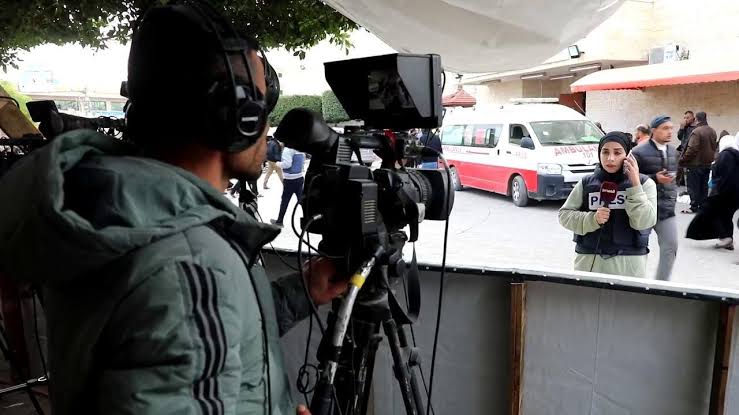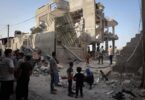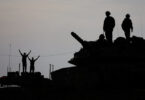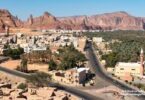Youssef Jajili
This footage was filmed and produced 24 December 2023. The Committee to Protect Journalists has reported at least 68 journalists and media workers have died in Gaza, Lebanon and Israel since Hamas’s invasion of southern Israel on October 7th and Israel’s deadly retaliation.
In 2009, I covered the Gaza war known as Operation Cast Lead. International journalists, including myself, assembled in tents at El Arish crossing, on the Egyptian-Palestinian border, hoping to directly cover the news in the Gaza Strip.
This was before social media empowered Gazans to broadcast live from their phones to ours. Yet we can’t equate professional journalism and social media.
Journalists cover the news, but today journalists are the news. In this current conflict, journalists have been killed in Gaza, Lebanon and Israel. The Committee to Protect Journalists reported at least 68 journalists and media workers have died in this war since Oct. 7, the deadliest period for journalists since the organization started compiling data three decades ago.
This is not the whole story. According to Human Rights Watch and Amnesty International, journalists are actively being targeted. The fate of journalists in Gaza is especially poignant because they provide a window into a world that has been cut off from international press and independent reporting (with the exception of one CNN journalist).
Their lives matter. Journalists write the first draft of history.
The Geneva Convention, a fundamental part of international humanitarian law, requires protection of civilians and journalists during armed conflict. But in Gaza, it’s almost as though journalists are being treated as combatants. Their deaths have become mere numbers, counted among the death toll of more than 20,000.
One might cynically conclude that the deaths of nearly six dozen journalists is par for the course in a war that is marked by indiscriminate bombing. But these journalists were informing the world, providing understanding and footage of Israel’s relentless assault that numbers and statistics alone cannot capture.
Faced with this terrible number of journalist deaths, five U.S. senators wrote a letter Dec. 15 to President Joe Biden asking for greater protection for journalists in Gaza and for foreign journalists to be allowed in. They also called on Egypt and Israel to lift restrictions on reporting from Gaza.
When I first attempted to enter Gaza with my tape recorder and notebook in 2009, the Egyptian authorities blocked me and other journalists from doing so without the written consent of our embassies. This was quite unusual. I already had a letter signed by my boss at Al-Masaa newspaper saying that my assignment required me to enter Gaza. But I had to drive eight hours across the Sinai Desert to the Moroccan Embassy in Cairo, where I showed officials that letter to get the additional paperwork I needed for the Egyptian authorities.
I was surprised by a strange request from the Moroccan consular official: “You must sign a complete waiver to absolve the Kingdom of Morocco of responsibility if you are subjected to harm or killed.” I signed the document without a second thought, and it wasn’t until much later that I noted how strange it was for my country to make me sign a waiver of liability should I die in a foreign land.
Now the killing of journalists in Gaza is being normalized with no one taking responsibility.
Journalists are also suffering in other ways. Wael Dahdouh, an Al Jazeera correspondent, received the news of the killing of his wife, children and several members of his family as he was live on air describing the Israeli advance on Gaza. Viewers watched his heart break in real time.
Recently, Dahdouh was badly wounded, and yet he continued to report with bandages on his arms.
Last year, the world was stunned by the killing of Palestinian American journalist Shireen Abu Akleh as she reported from the West Bank town of Jenin. In a 2021 video, she recounted: “In the difficult moments, I overcame my fear because I chose journalism in order to be close to the people. It might not be easy for me to change the reality, but at least I was able to convey the people’s message and voice to the world.”
In May, a year after her death, the Israel Defense Forces apologized for her killing after conceding a “high possibility” that she was shot by an Israeli soldier. IDF spokesman Daniel Hagari said, “We want journalists to feel safe in Israel, especially in wartime.”
How empty these words feel now.
Today journalists are dying in this war at a staggering rate with zero accountability. If this pace continues, who will be left to accurately report from this conflict zone?
courtesy : madison.com







